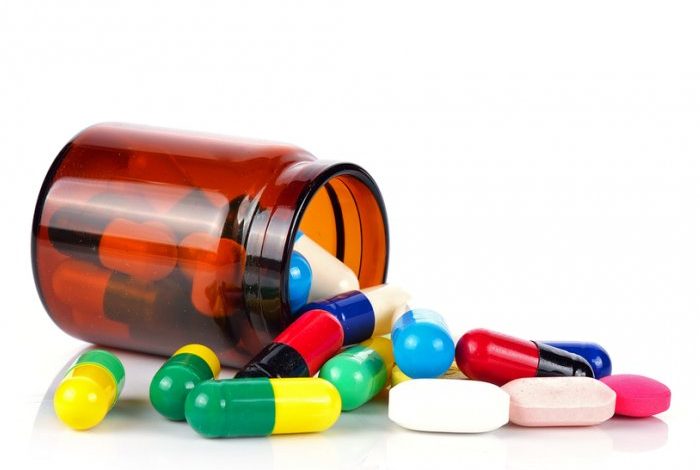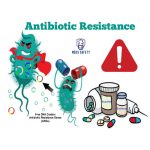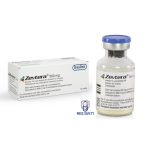The 10 Benefits Of Antibiotic Stewardship Practices

What is Antibiotic Stewardship Practice?
Antibiotic stewardship is a systematic approach designed to optimize the use of antibiotics to ensure effective treatment while minimizing the risk of antibiotic resistance and other adverse effects. It involves coordinated efforts among healthcare providers, pharmacists, microbiologists, infection control specialists, and patients to promote the responsible use of antibiotics. This practice acknowledges the critical importance of antibiotics in treating bacterial infections while recognizing the need to preserve their effectiveness for future generations.
Central to antibiotic stewardship is the concept of appropriate antibiotic use. This entails selecting the right antibiotic, at the right dose, for the right duration, and through the appropriate route of administration to effectively treat the infection while minimizing collateral damage to the patient’s microbiota and reducing the risk of antibiotic resistance. Inappropriate antibiotic use, such as overprescribing, unnecessary prescribing, or improper dosing, can contribute to the emergence and spread of antibiotic-resistant bacteria, compromising the effectiveness of these life-saving drugs.
Antibiotic stewardship programs (ASPs) are implemented in various healthcare settings, including hospitals, long-term care facilities, and outpatient clinics. These programs typically involve multidisciplinary teams responsible for developing and implementing strategies to optimize antibiotic use. Key components of ASPs may include:
1. Guidelines and Protocols: Developing evidence-based guidelines and protocols for antibiotic prescribing based on local epidemiology, antimicrobial susceptibility patterns, and clinical practice guidelines.
2. Education and Training: Providing education and training for healthcare providers on antibiotic resistance, appropriate antibiotic use, and the principles of antibiotic stewardship. This includes regular updates on new developments in infectious diseases and antimicrobial therapy.
3. Antibiotic Review and Feedback: Conducting regular reviews of antibiotic prescriptions to ensure adherence to guidelines and appropriateness of therapy. Providing feedback to prescribers regarding their antibiotic prescribing practices and opportunities for improvement.
4. Antimicrobial Stewardship Team: Establishing a dedicated antimicrobial stewardship team consisting of infectious disease specialists, pharmacists, microbiologists, and infection control practitioners to oversee and guide antibiotic stewardship efforts.
5. Antibiotic Restriction and Preauthorization: Implementing strategies such as antibiotic restriction and preauthorization to ensure that certain antibiotics are used appropriately and only when necessary.
6. Surveillance and Monitoring: Monitoring antibiotic use, antimicrobial resistance patterns, and healthcare-associated infections to identify trends, emerging resistance, and areas for improvement.
7. Patient Engagement: Engaging patients in discussions about antibiotic therapy, promoting adherence to prescribed antibiotics, and providing education on the importance of completing the full course of antibiotics as prescribed.
What is a possible benefit of antibiotic stewardship practices?
The possible benefits of antibiotic stewardship practices include:
Preservation of Antibiotic Effectiveness: Antibiotics have been instrumental in saving countless lives since their discovery, revolutionizing medicine by effectively treating bacterial infections. However, their overuse and misuse have led to the emergence of antibiotic-resistant bacteria, threatening the effectiveness of these life-saving drugs. Antibiotic stewardship practices play a crucial role in preserving antibiotic effectiveness for current and future generations.
By promoting appropriate antibiotic use, stewardship practices help prevent the development and spread of antibiotic resistance. When antibiotics are used judiciously and only when necessary, the selective pressure on bacteria to develop resistance is reduced. This can slow down the rate at which resistant strains emerge and preserve the effectiveness of existing antibiotics.
Reduced Antibiotic Resistance: Antibiotic resistance occurs when bacteria adapt and become resistant to the drugs designed to kill them. Overuse and misuse of antibiotics contribute to the selection of resistant bacteria, making infections more difficult to treat and posing a significant public health threat. Stewardship efforts aim to mitigate the emergence and spread of antibiotic-resistant bacteria by minimizing the selection pressure for resistant strains.
Through education, guideline development, and antibiotic review, stewardship programs promote appropriate antibiotic prescribing practices. By ensuring that antibiotics are used only when necessary and selecting the most appropriate agent based on microbial susceptibility data, stewardship practices can help slow the development and spread of antibiotic resistance.
Improved Patient Outcomes: Optimizing antibiotic use through stewardship practices can lead to better treatment outcomes for patients. When antibiotics are prescribed appropriately, patients are more likely to experience faster recovery from infections and reduced risk of complications. This is particularly important for patients with severe or life-threatening infections, where the timely and effective administration of antibiotics can be critical.
By selecting the most effective antibiotic based on the type and severity of the infection, stewardship practices ensure that patients receive optimal treatment. This can result in shorter hospital stays, reduced healthcare costs, and improved overall patient satisfaction with their healthcare experience.
Decreased Healthcare Costs: The overuse and misuse of antibiotics contribute to unnecessary healthcare costs, including the costs associated with treating antibiotic-resistant infections and managing complications. Stewardship practices help reduce healthcare costs by promoting appropriate antibiotic prescribing and minimizing the incidence of antibiotic-resistant infections.
By avoiding unnecessary antibiotic use, stewardship programs can lower the direct costs of antibiotic therapy, including the cost of the drugs themselves and the associated medical services. Additionally, by preventing the spread of antibiotic-resistant bacteria and reducing the need for costly alternative treatments, stewardship practices can help lower overall healthcare expenditures and improve the efficiency of healthcare delivery.
Prevention of Adverse Drug Events: Antibiotics are associated with a range of adverse drug events, including allergic reactions, gastrointestinal disturbances, and antibiotic-associated infections like Clostridioides difficile (C. difficile) colitis. These adverse events can result in prolonged hospital stays, increased healthcare costs, and significant morbidity and mortality for patients.
By avoiding unnecessary antibiotic use, stewardship practices can help prevent adverse drug events and minimize the associated health risks for patients. By selecting the most appropriate antibiotic based on factors such as the type of infection, microbial susceptibility, and patient-specific factors, stewardship programs can reduce the likelihood of adverse drug reactions and improve patient safety.
Reduced Risk of Healthcare-Associated Infections: Healthcare-associated infections (HAIs) are a significant source of morbidity and mortality in healthcare settings, particularly among vulnerable patient populations. Antibiotic-resistant bacteria are a major cause of HAIs, posing a serious threat to patient safety and complicating infection control efforts.
Effective antibiotic stewardship can help prevent the spread of antibiotic-resistant bacteria within healthcare facilities, reducing the risk of HAIs and improving patient outcomes. By promoting appropriate antibiotic use and implementing infection control measures such as hand hygiene and isolation precautions, stewardship programs can minimize the transmission of resistant pathogens and protect patients from healthcare-associated infections.
Promotion of Antimicrobial Diversity: Antibiotic stewardship practices encourage the appropriate use of a diverse range of antibiotics, preserving options for treating infections caused by different bacterial pathogens. This is important because different antibiotics have different mechanisms of action and spectrum of activity, making them effective against specific types of bacteria.
By avoiding the overuse of broad-spectrum antibiotics and promoting the use of narrow-spectrum agents when appropriate, stewardship programs help preserve the effectiveness of antibiotics and reduce the risk of antibiotic resistance. This ensures that healthcare providers have access to a variety of treatment options for bacterial infections, even as resistance patterns evolve over time.
Optimized Resource Utilization: Antibiotic stewardship practices help optimize the use of healthcare resources, including antibiotics, diagnostic tests, and hospital beds. By ensuring that antibiotics are used judiciously and appropriately, stewardship programs help minimize waste and reduce unnecessary healthcare expenditures.
Through strategies such as guideline development, education, and antibiotic review, stewardship programs promote the optimal use of antibiotics based on factors such as the type and severity of the infection, microbial susceptibility data, and patient-specific factors. This can help reduce the overuse of antibiotics, minimize the incidence of antibiotic-resistant infections, and improve the efficiency of healthcare delivery.
Enhanced Infection Control: In addition to promoting appropriate antibiotic use, many antibiotic stewardship programs incorporate infection control measures to prevent the transmission of antibiotic-resistant bacteria within healthcare facilities. These measures may include hand hygiene, environmental cleaning, and isolation precautions for patients with known or suspected antibiotic-resistant infections.
By implementing infection control measures alongside antibiotic stewardship practices, healthcare facilities can minimize the risk of healthcare-associated infections and improve patient safety. This is particularly important in settings such as hospitals and long-term care facilities, where vulnerable patient populations may be at increased risk of infection.
Contribution to Global Health Security: Antibiotic stewardship efforts contribute to global health security by reducing the spread of antibiotic-resistant pathogens and strengthening healthcare systems’ capacity to respond to infectious disease threats. By promoting appropriate antibiotic use and minimizing the emergence and spread of antibiotic resistance, stewardship programs help protect populations from the threat of antibiotic-resistant infections.
In an interconnected world where infectious diseases can spread rapidly across borders, antibiotic stewardship plays a critical role in preventing the spread of antibiotic-resistant bacteria and preserving the effectiveness of antibiotics for future generations. By collaborating with international partners and sharing best practices, stewardship programs can help build resilient healthcare systems capable of responding to emerging infectious disease threats and safeguarding public health on a global scale.
In conclusion, antibiotic stewardship practices offer numerous benefits, including the preservation of antibiotic effectiveness, reduced antibiotic resistance, improved patient outcomes, decreased healthcare costs, prevention of adverse drug events, reduced risk of healthcare-associated infections, promotion of antimicrobial diversity, optimized resource utilization, enhanced infection control, and contribution to global health security. These benefits underscore the importance of antibiotic stewardship in promoting responsible antibiotic use, improving patient care, and safeguarding public health in healthcare settings worldwide.





